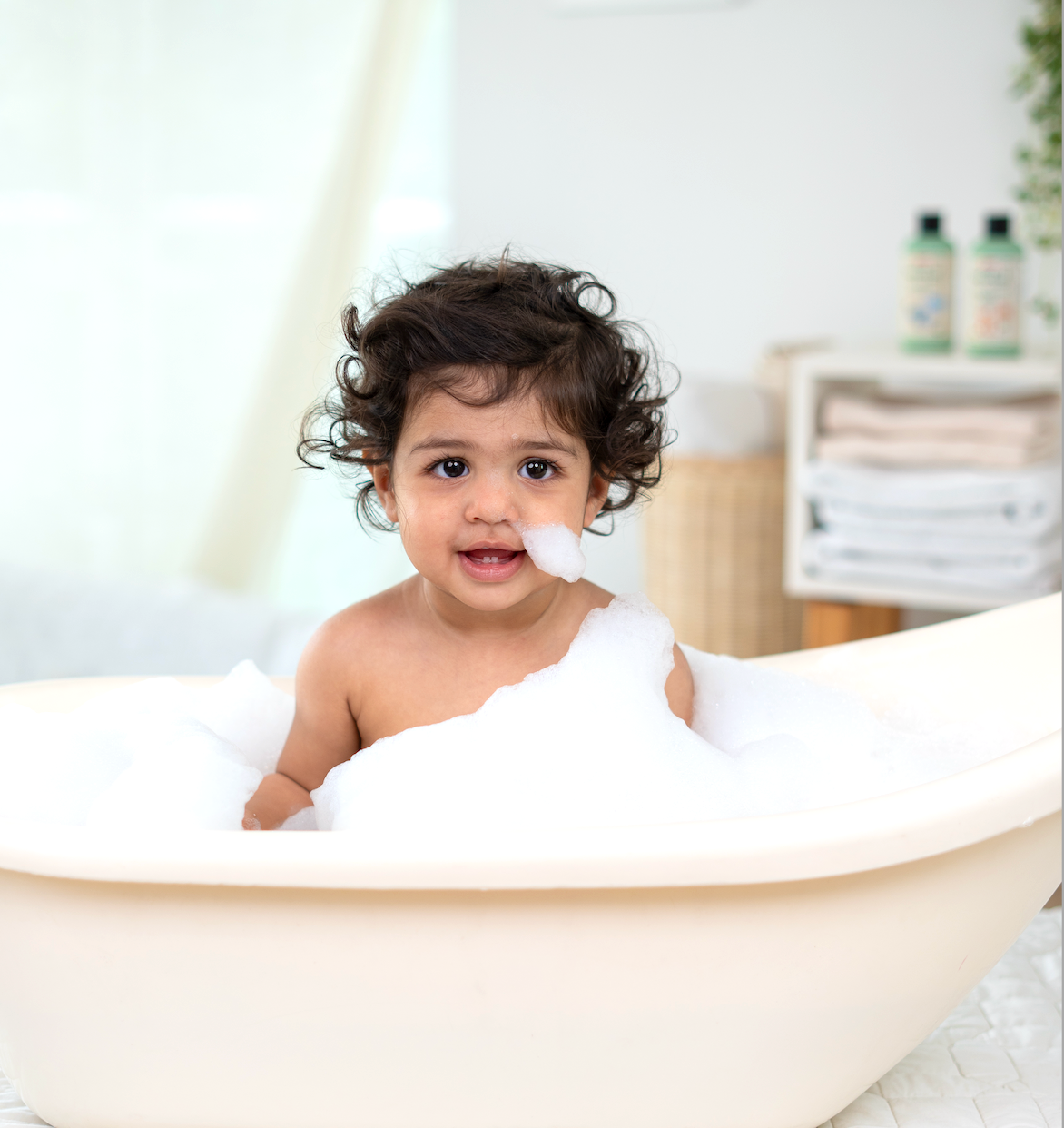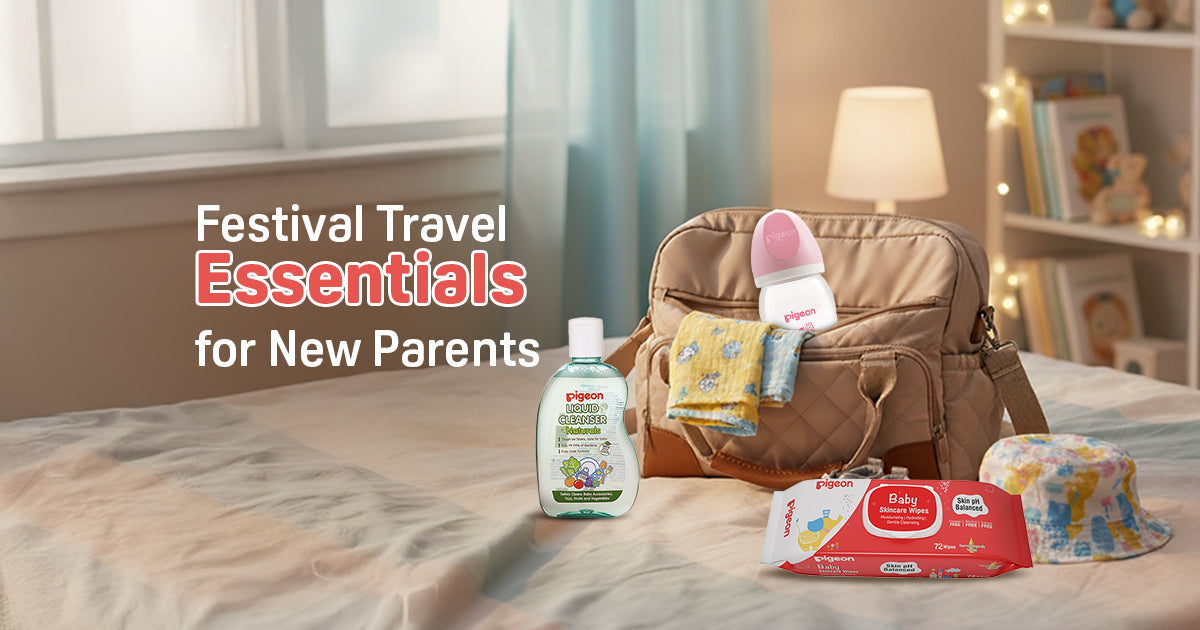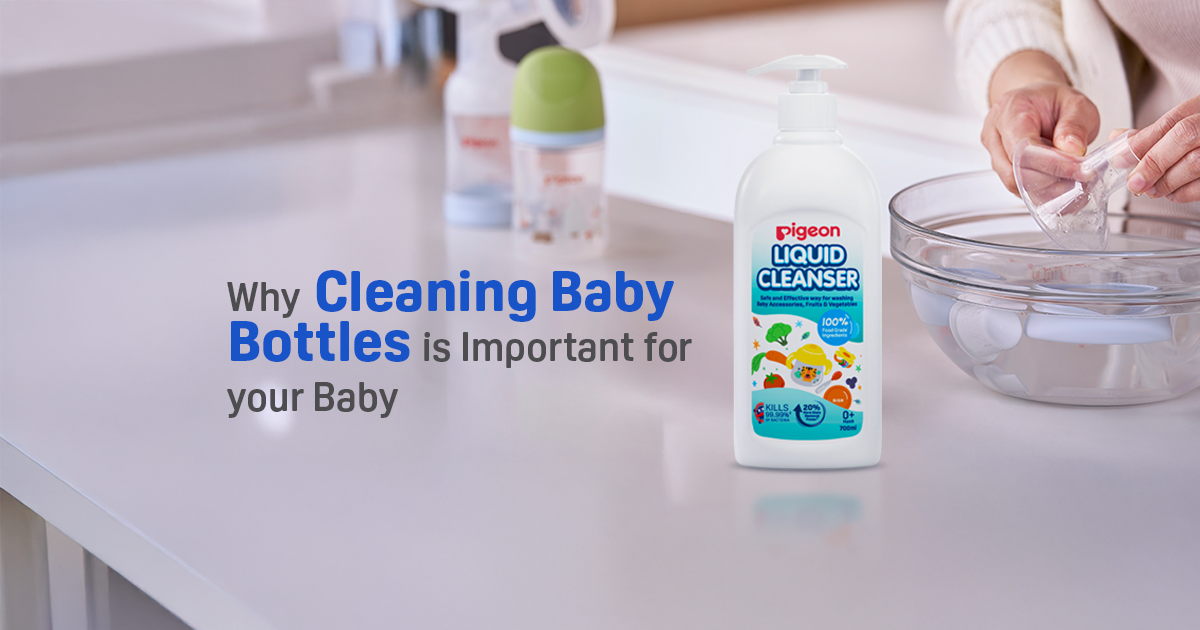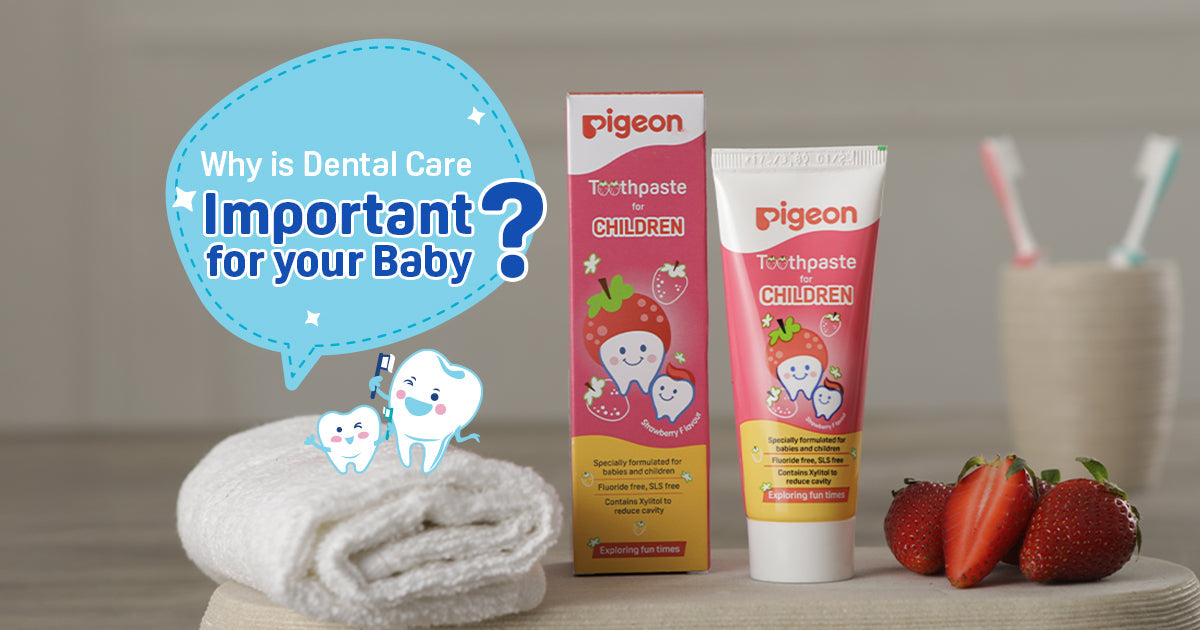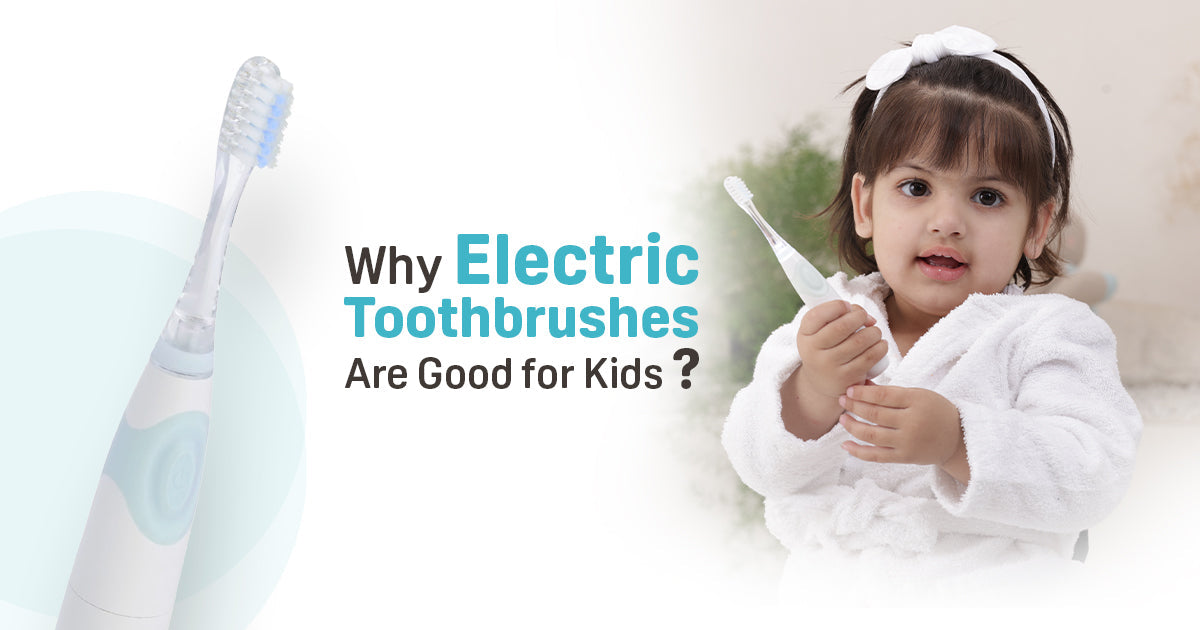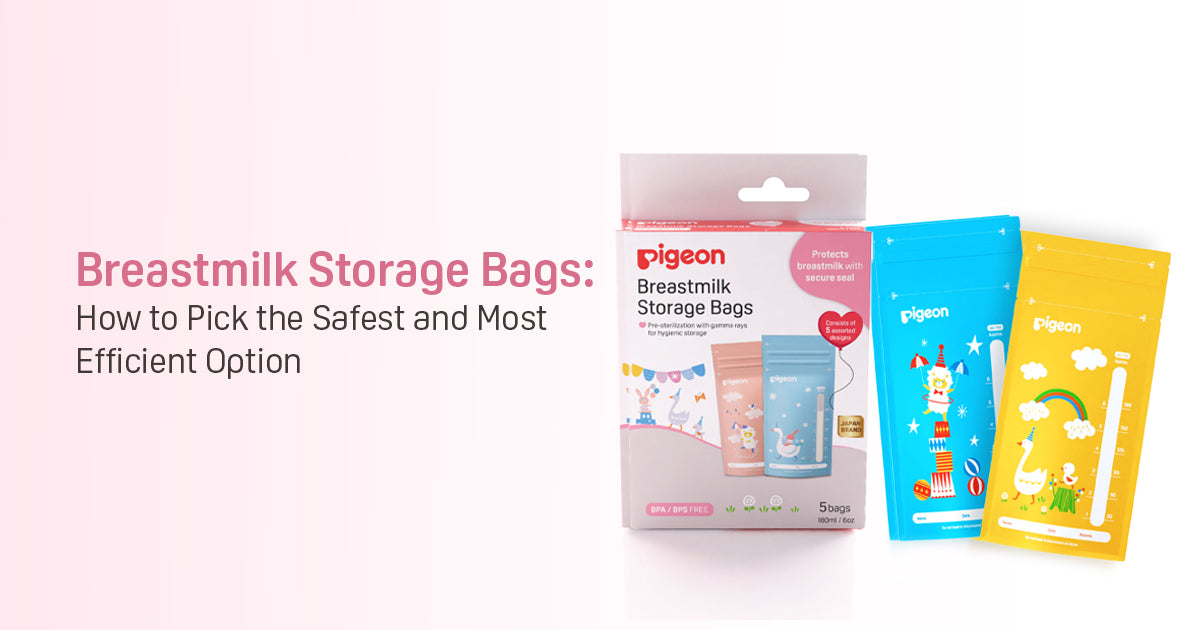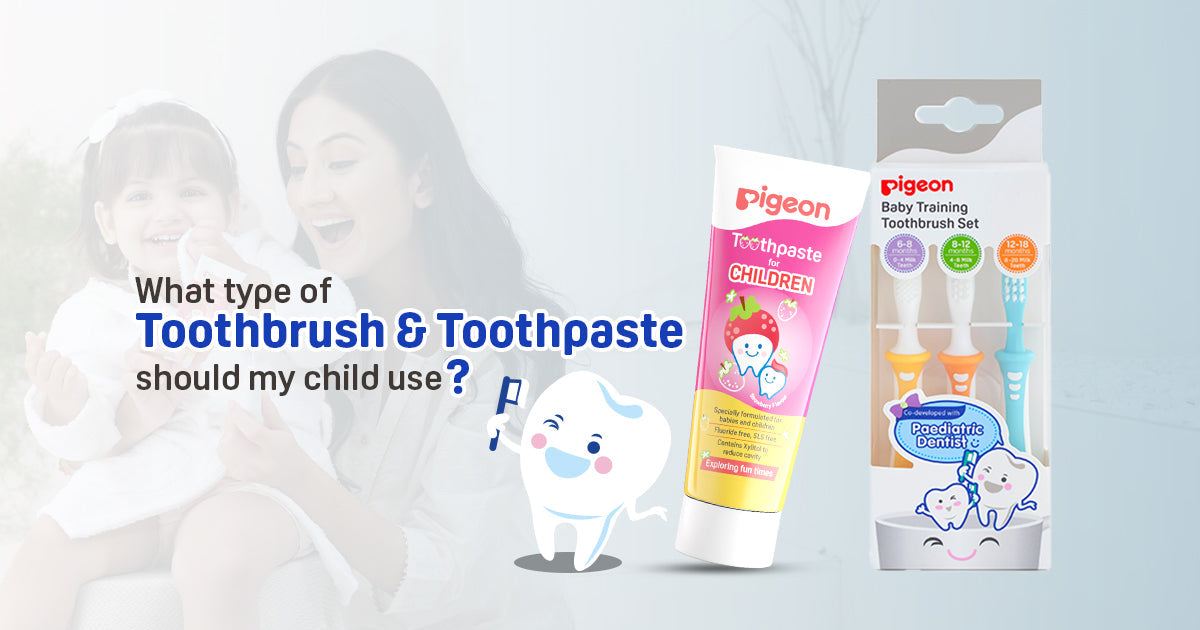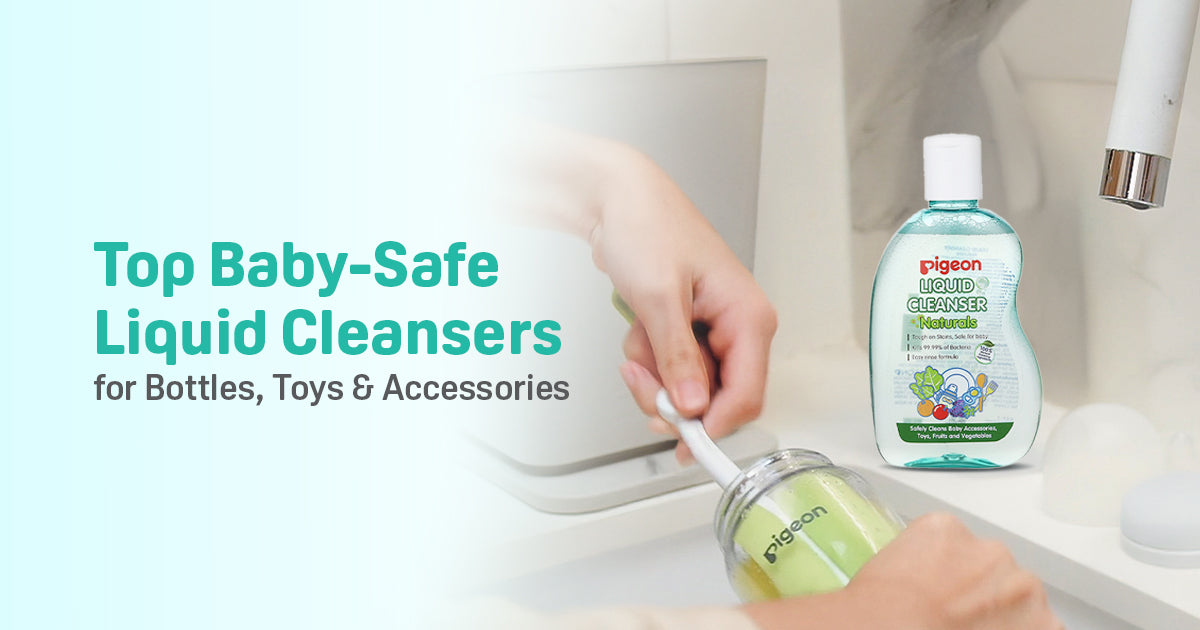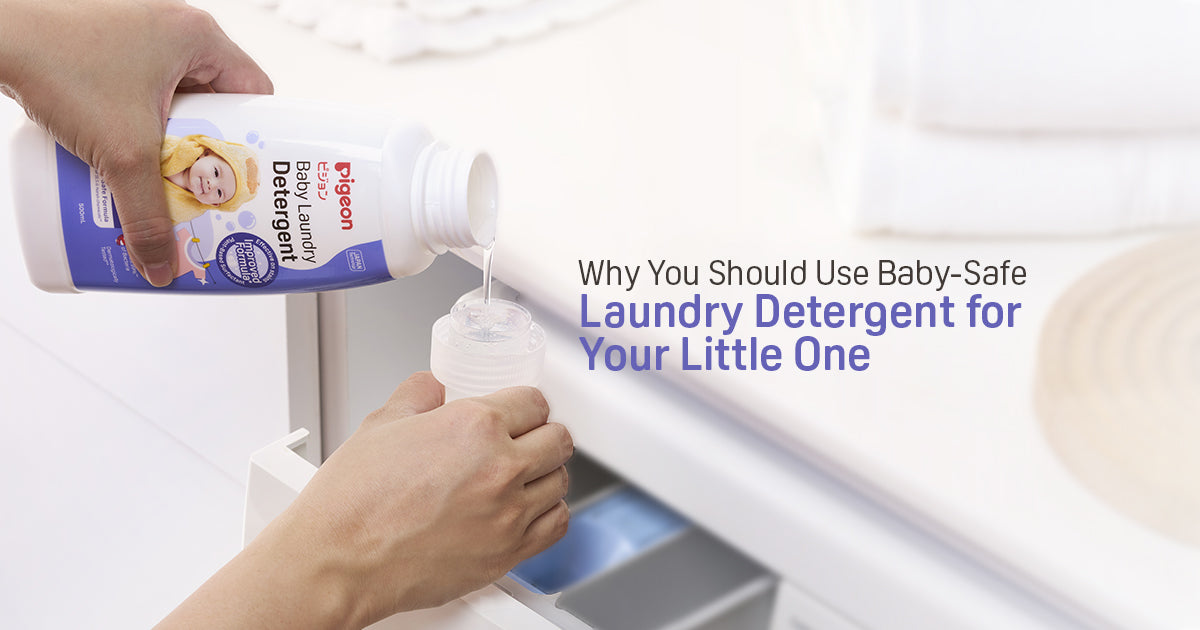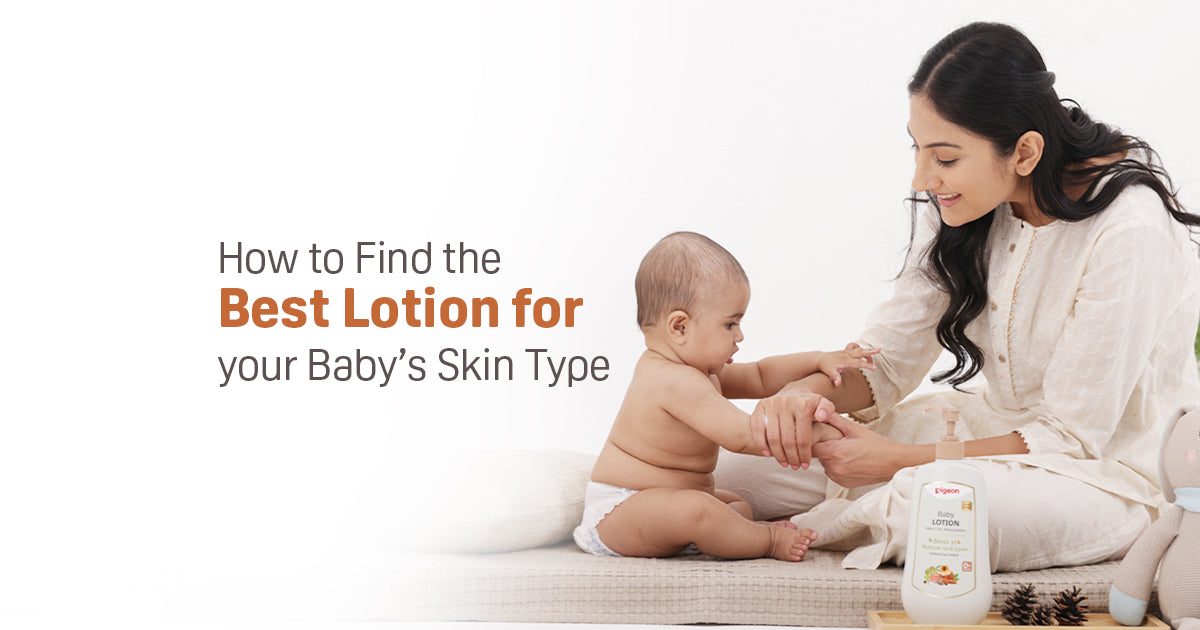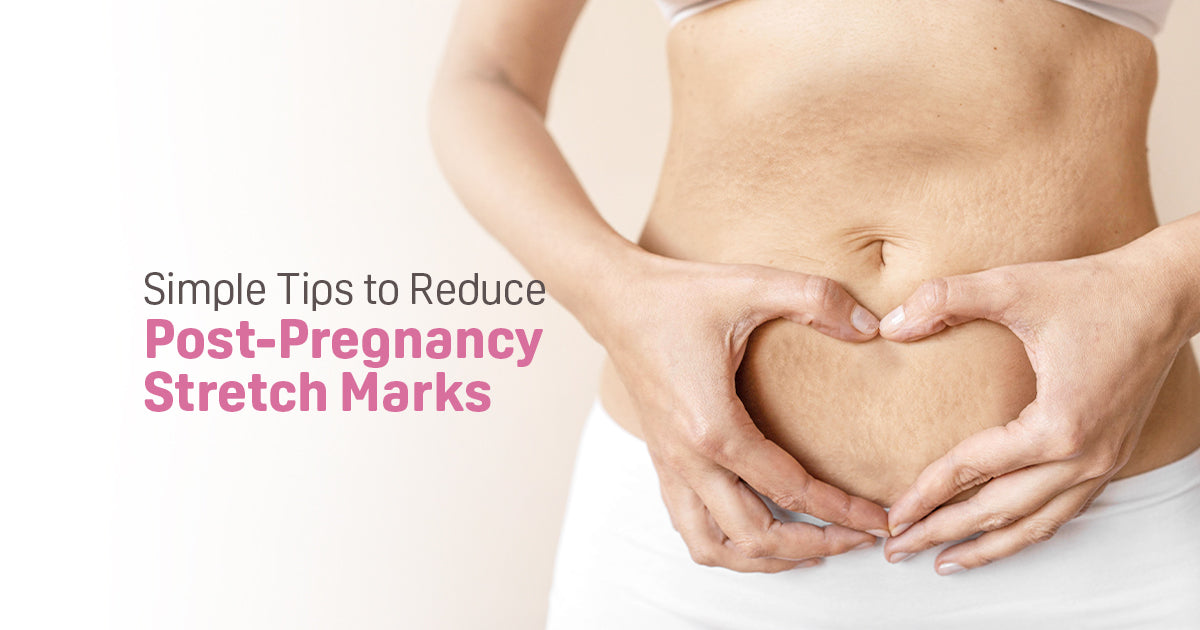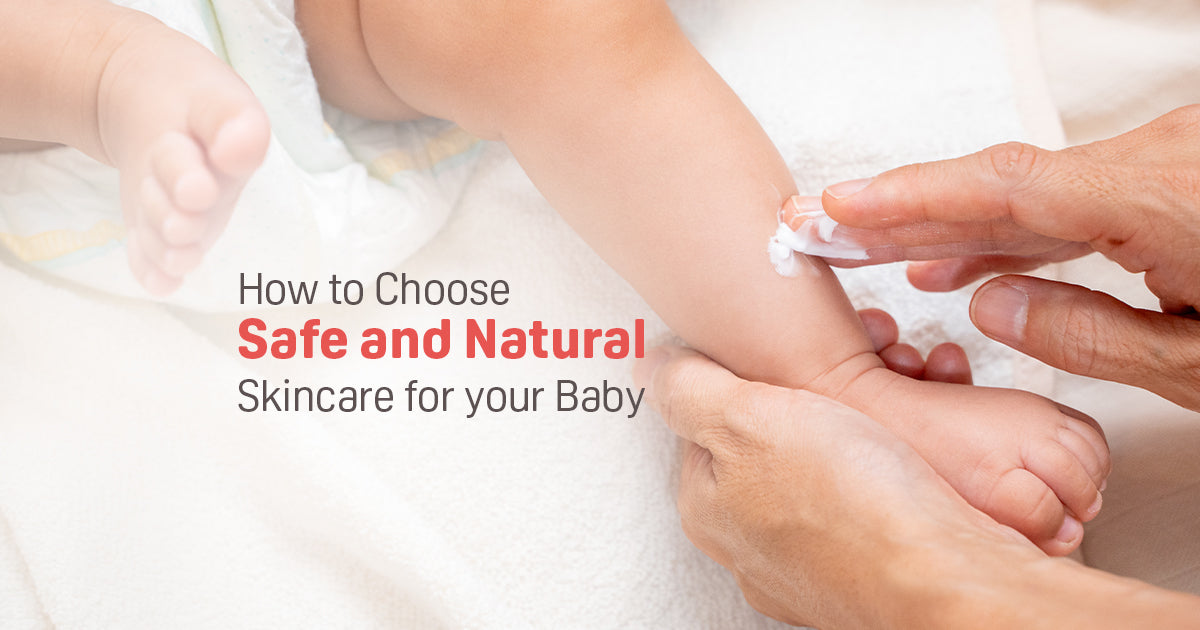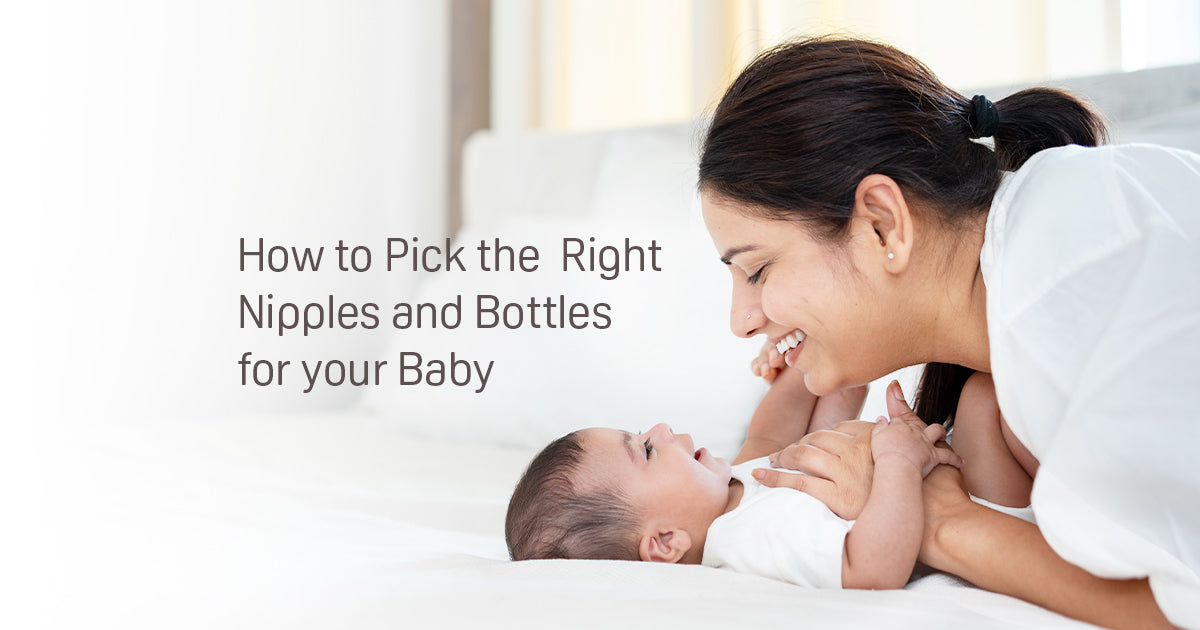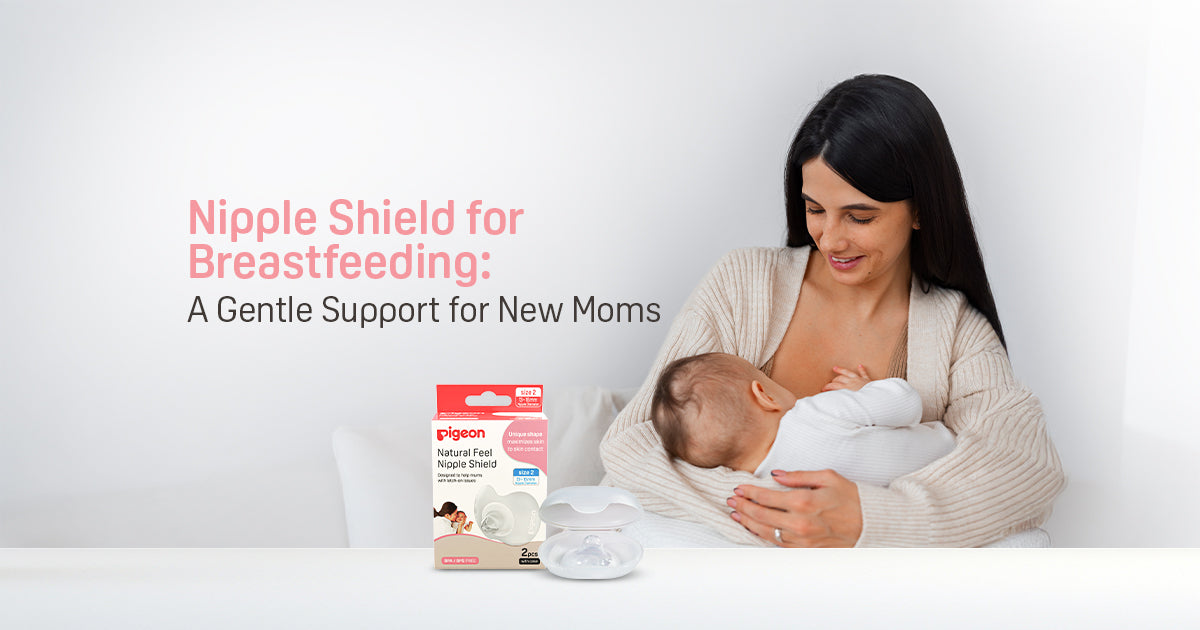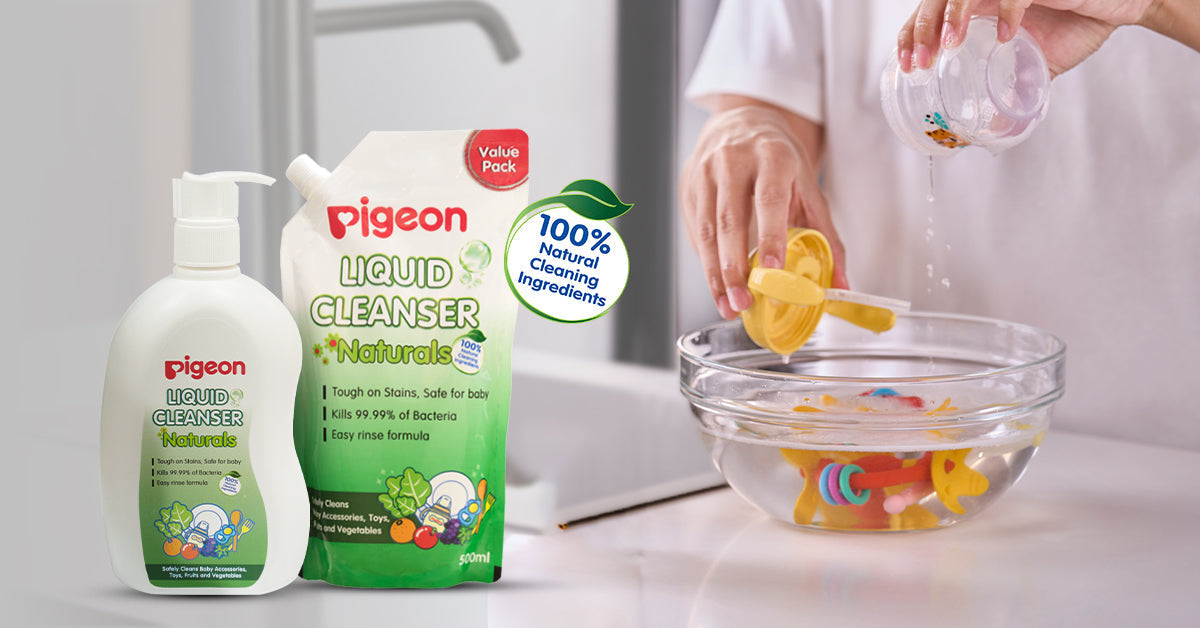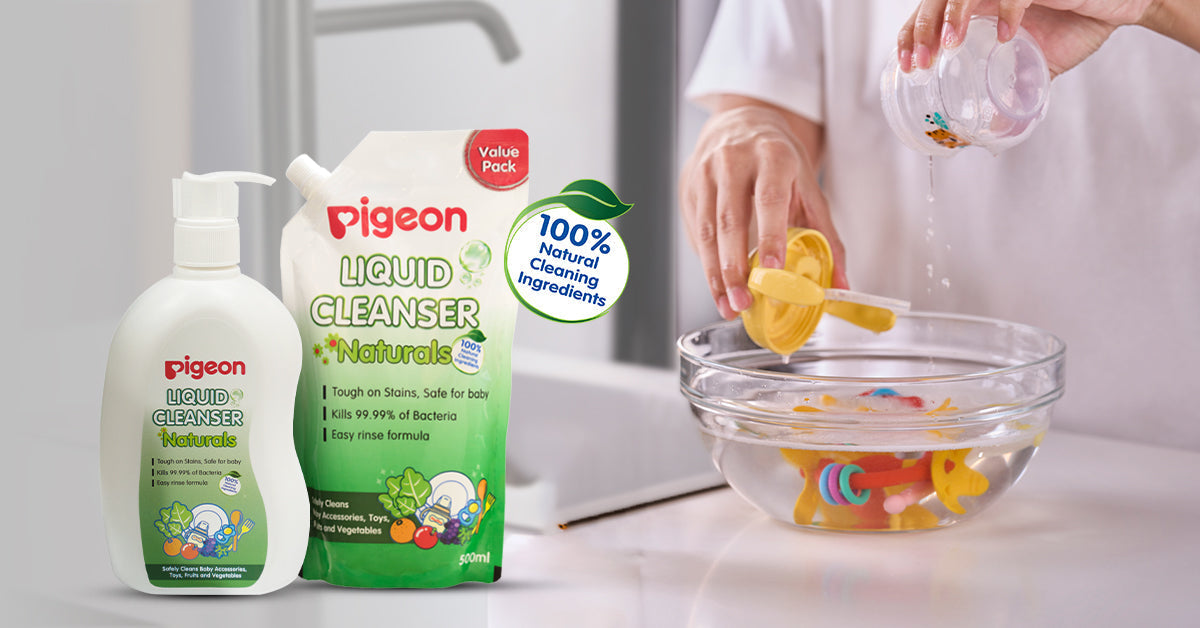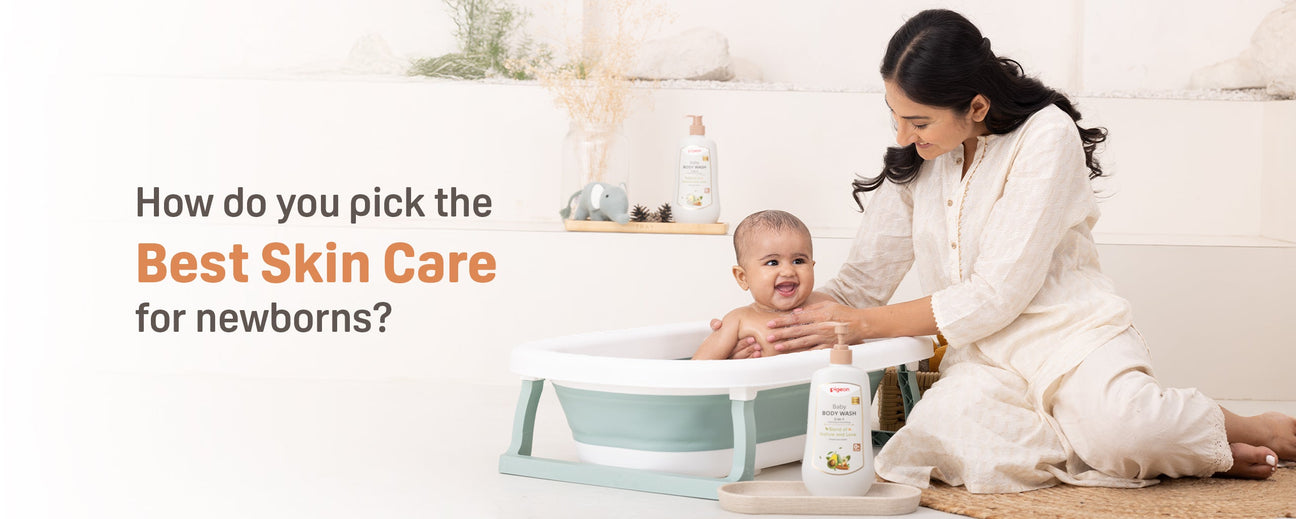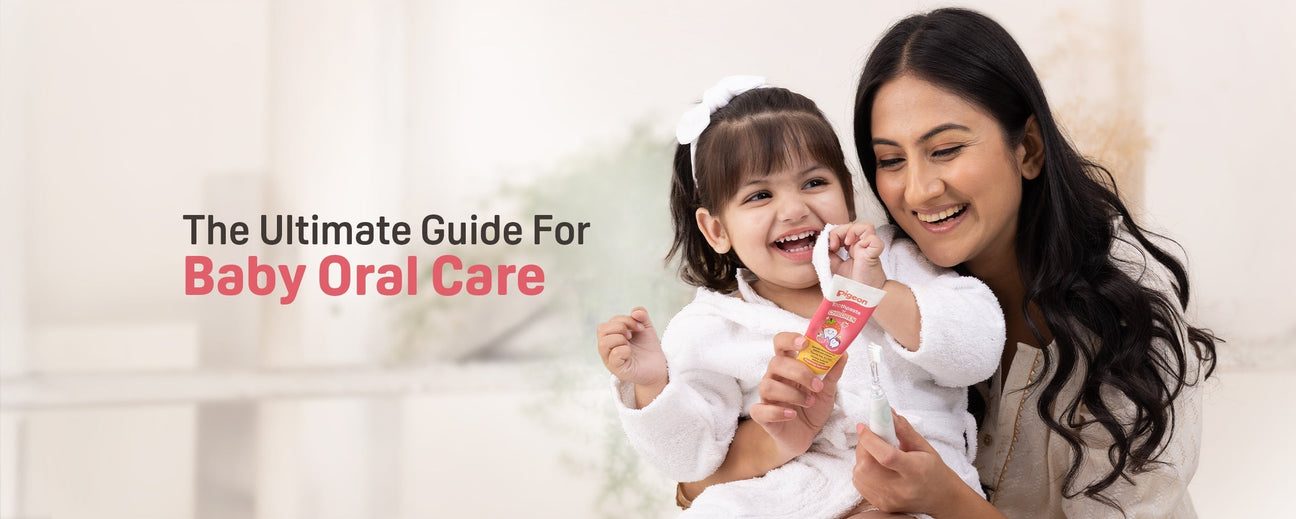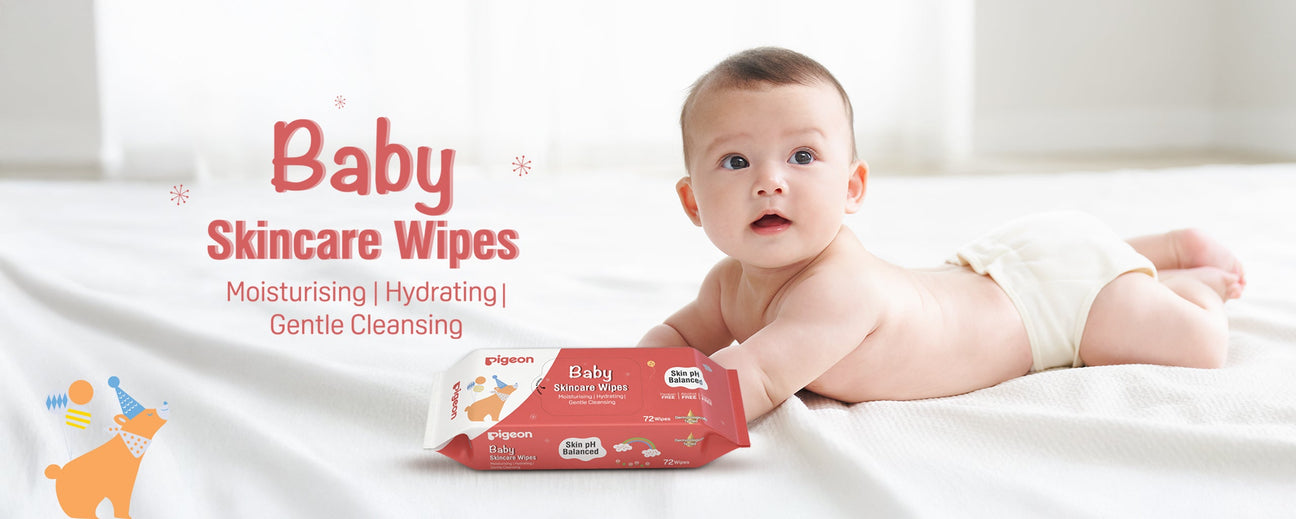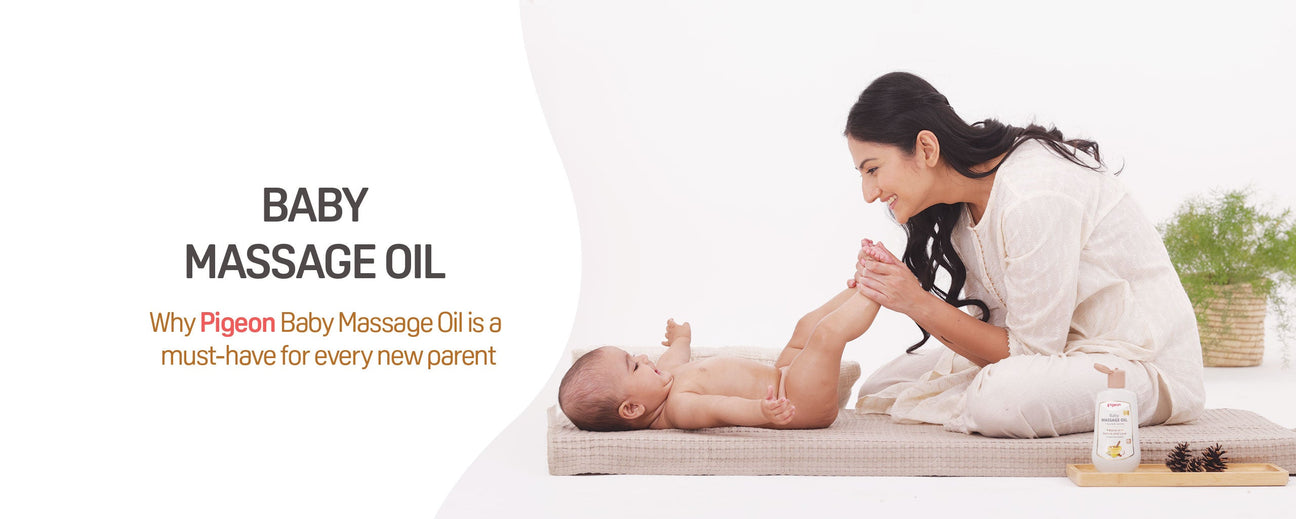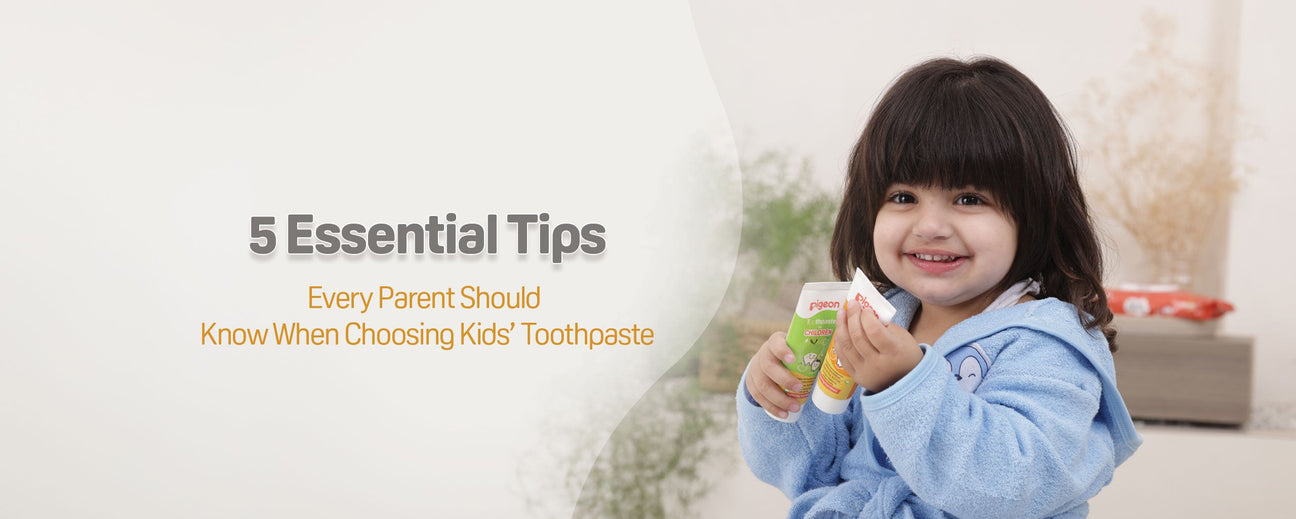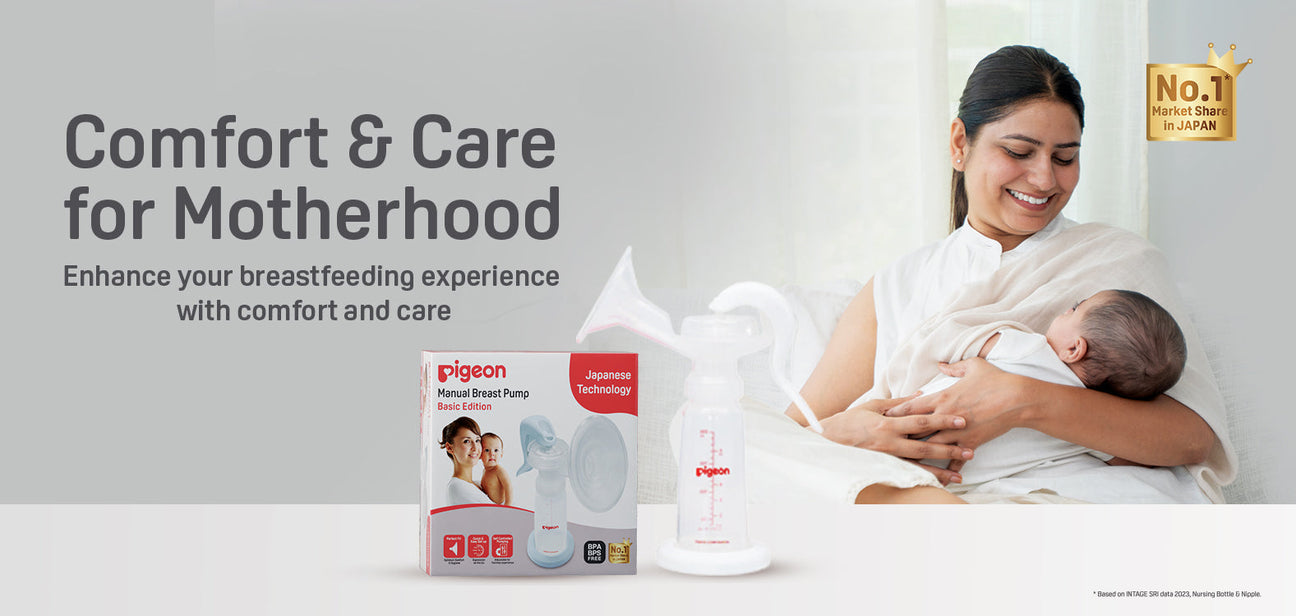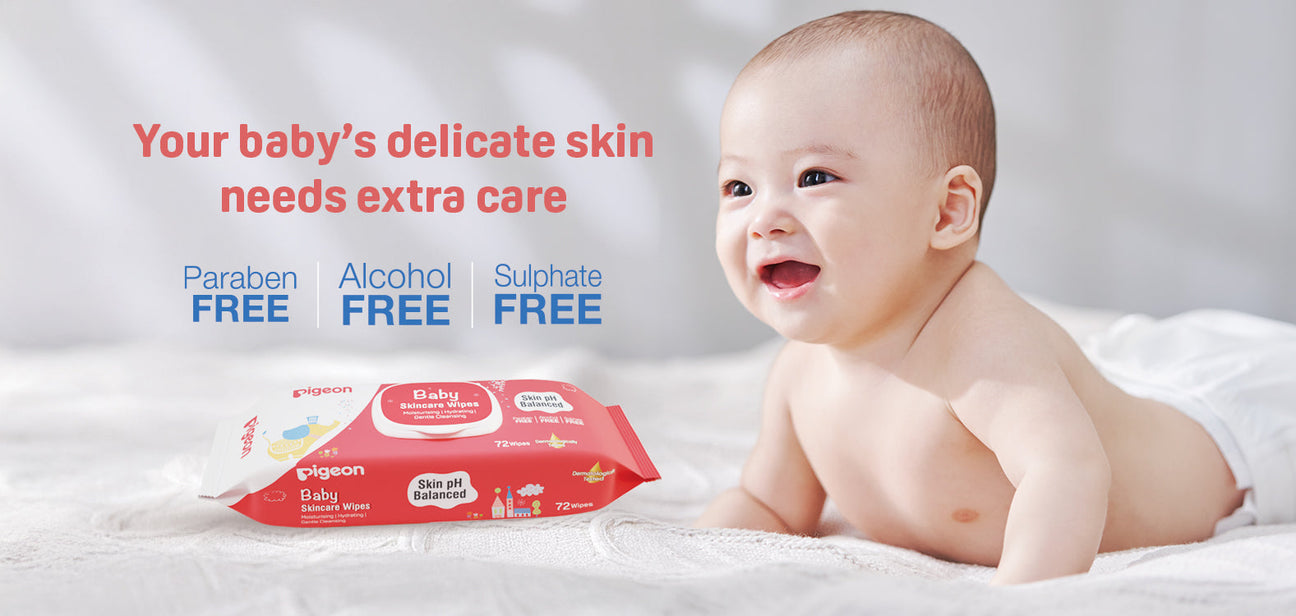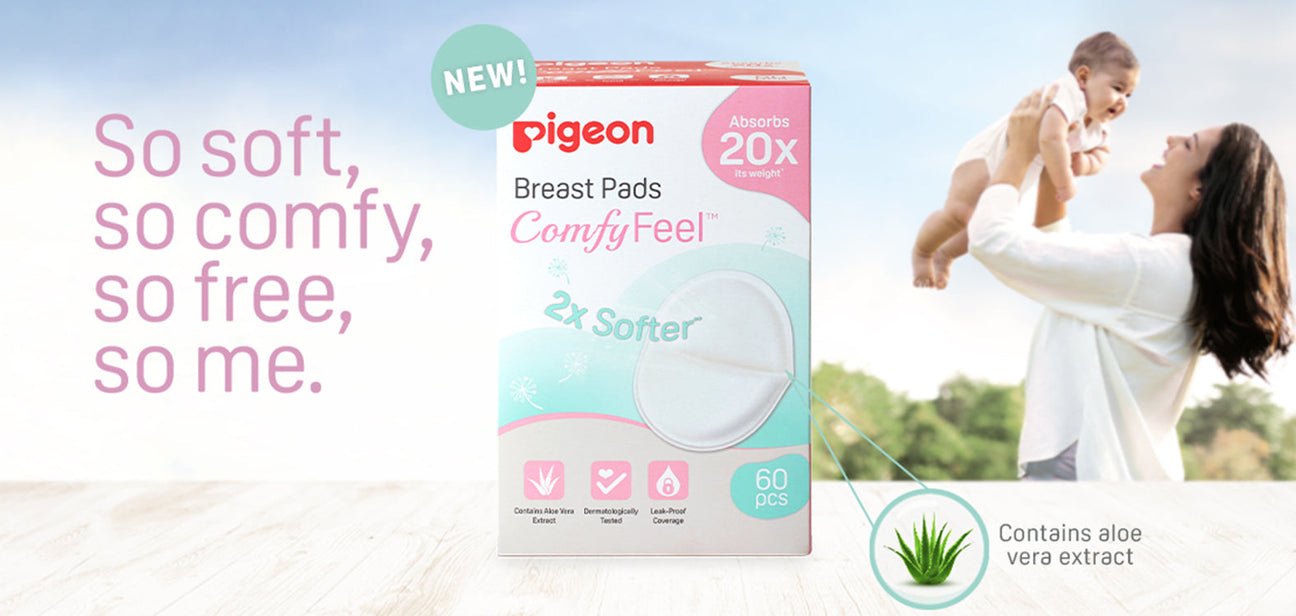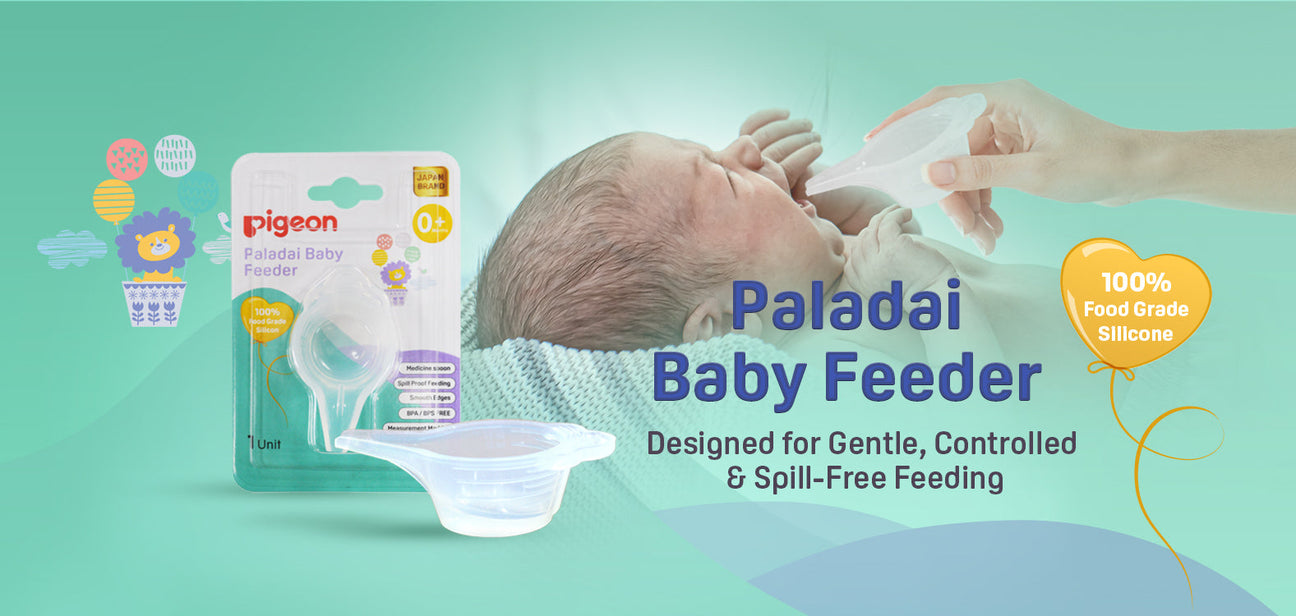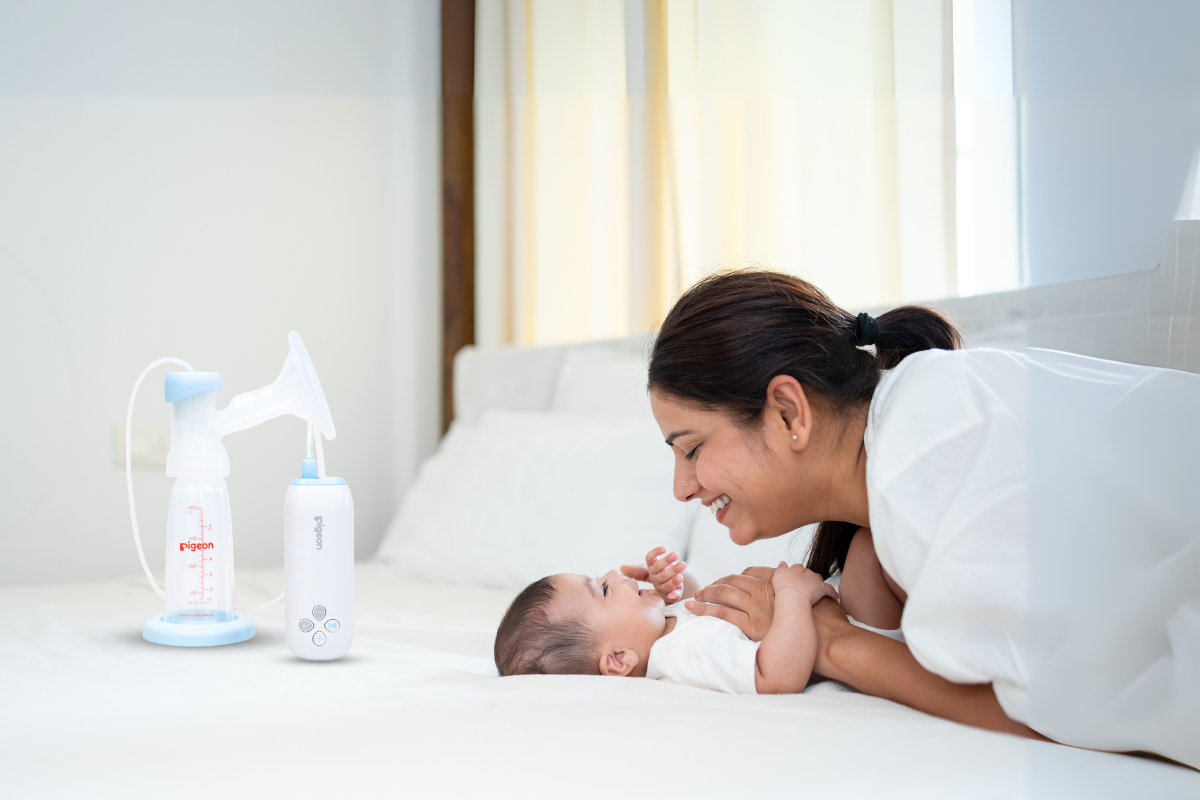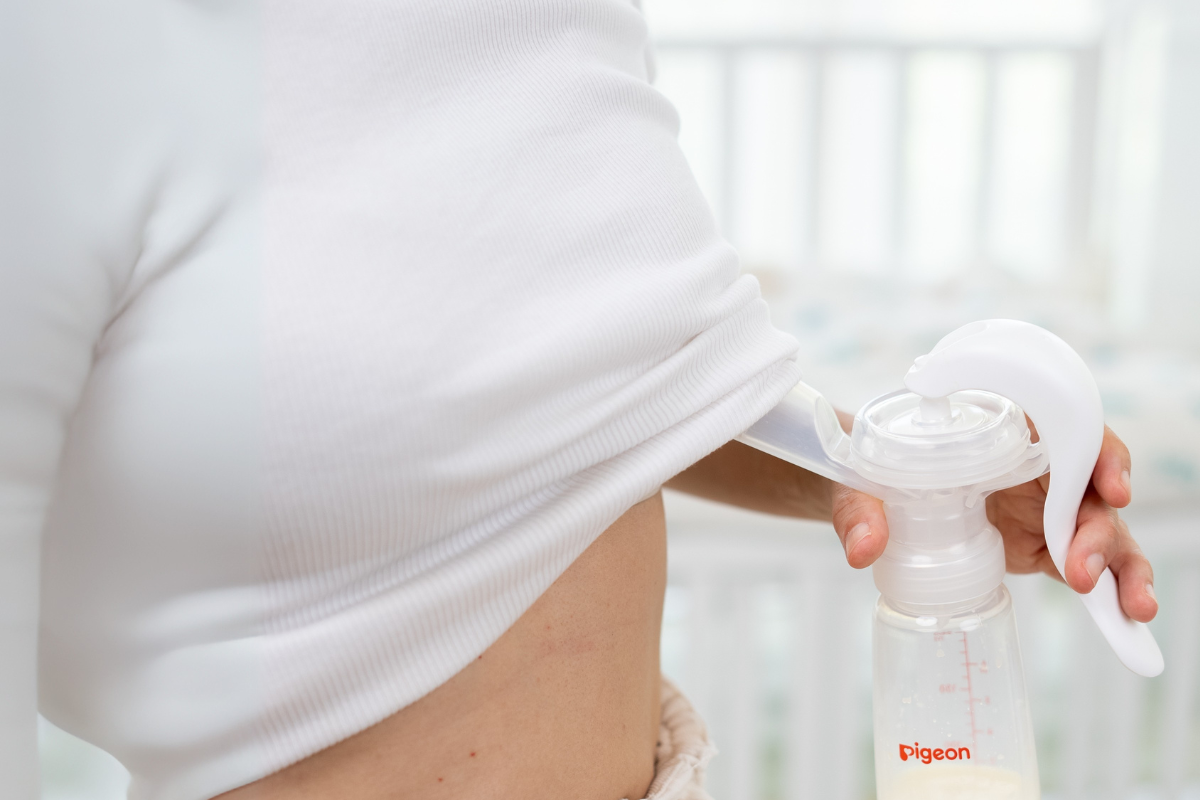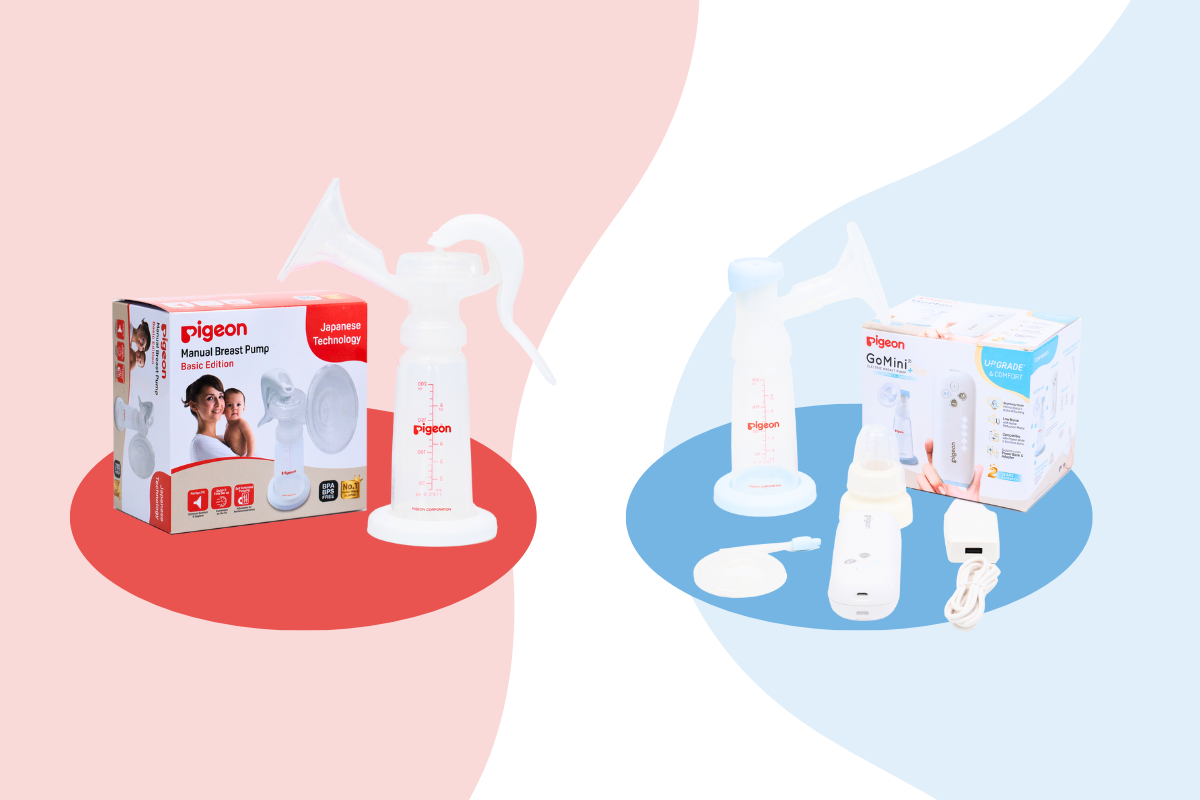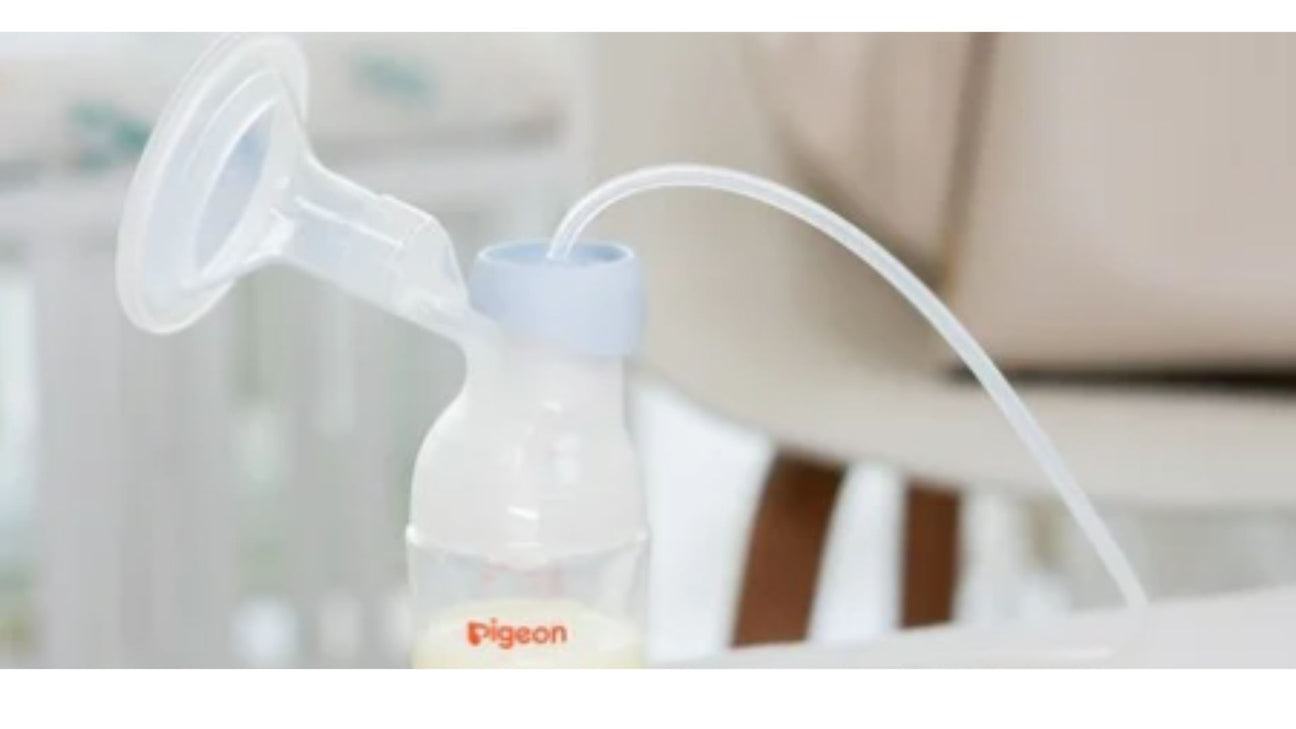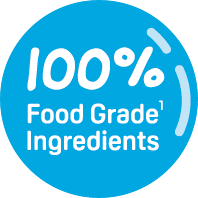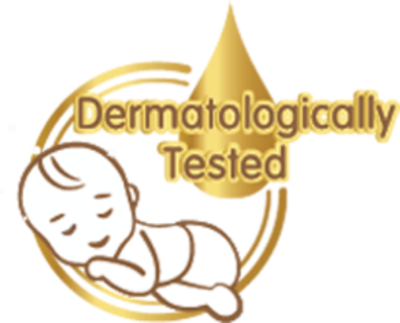A strong base in your child’s health is what shapes their tomorrow. A future where they grow with strength, confidence, and that beautiful, sparkling smile. When we think of baby care, we often focus on food, sleep, or vaccines, but there's one part that quietly shapes their well-being from the start: dental care.
Yes, dental care. Starting early, and doing it right, can mean fewer struggles later and a smoother journey into toddlerhood, school days, and beyond. Let’s understand together how to care for those tiny teeth, why it matters so much, and which baby-friendly products make this journey easier.
First Teeth First
Your baby’s first tooth usually makes its appearance somewhere between 6 to 10 months. Some may see it earlier, some later and that’s completely okay. But what’s important is recognizing that the moment the first tooth shows up, dental care begins.
Those tiny pearls may seem harmless, but they need gentle attention. Just like bones need calcium and muscles need movement, teeth need daily care, even when they’re just starting out.
Are Baby Teeth Really That Important?
Many parents wonder, if baby teeth are going to fall out anyway, does it really matter how much care we give them? The answer is a gentle but firm yes. Baby teeth, also called milk teeth, play a far more important role than just helping your baby flash that adorable grin. Here's why they truly matter:
Help with Proper Chewing and Digestion
When babies start eating solid food, their teeth help them break down food properly. This is more than just convenience, it’s the first step in good digestion. Poor chewing can lead to stomach issues or make mealtime a challenge. Strong baby teeth help your little one enjoy a variety of textures and tastes without discomfort.
Support Speech and Language Development
Your baby’s first words, those magical “mama” and “papa”, are shaped by their mouth, tongue, and yes, their teeth. Teeth help guide the tongue to the right positions for clear speech. If teeth are missing too early due to decay or neglect, it can affect how your child pronounces certain sounds or words later on.
Hold Space for Permanent Teeth
Think of baby teeth as placeholders. They guide the adult teeth to grow in the right direction. If a baby tooth is lost too soon, surrounding teeth may shift into that empty space, leading to crowding or misalignment when permanent teeth come in. This could eventually lead to orthodontic issues or the need for braces.
Encourage Healthy Jaw and Facial Development
Baby teeth contribute to proper jaw growth by supporting the muscles and bone structure of the face. A well-aligned set of baby teeth helps the jaw develop evenly, ensuring your child’s facial growth stays balanced. This can also help avoid problems with chewing, breathing, or even posture in later years.
Boost Confidence Through a Healthy Smile
A healthy smile can make your child feel good about themselves. Even toddlers can experience shyness or discomfort if they have visible tooth decay or pain. When a child feels good about their smile, they’re more likely to express themselves freely, smile often, and build positive social habits from a young age.
What Products Can Help You Take Better Care?
Caring for baby teeth doesn't have to be complicated, especially when you have the right tools. Here are some gentle and trusted products by Pigeon that make this early dental journey safer and easier:
Pigeon Baby Training Toothbrush Lesson 1 (6–8 months)
Perfect for babies who are just getting their first teeth. Soft nylon bristles, a curved grip, and a gentle handle help clean without hurting those sensitive gums. This toothbrush is designed to make brushing a comfortable and positive experience.
Pigeon Kids Toothbrush (2–6 years)
Once your child has more teeth (usually after 18 months), this toothbrush becomes your best friend. It’s co-developed with pediatric dentists, has soft rounded bristles for gentle cleaning, and a curved handle for better control.
Pigeon Toothpaste for Children
Available in yummy fruit flavours, this toothpaste is fluoride-free, SLS-free, and color-free, which means it’s safe if your little one accidentally swallows some. It helps prevent tooth decay and keeps gums healthy.
Pigeon Baby Tooth & Gum Wipes
For babies 6 months and above, these wipes are made with 100% food-grade ingredients. They’re perfect for cleaning teeth and gums, especially when you’re on the go or your baby isn’t yet ready for a toothbrush.
At Pigeon, We Understand that being a parent comes with hundreds of little decisions every day, and we want to make those decisions a little easier. We understand how delicate your baby’s first moments are, especially when it comes to their health and hygiene. That’s why we’ve developed a wide range of products tailored just for early dental care, from baby toothbrushes and safe toothpaste to gentle gum wipes and kid-friendly brushes. Each product is designed with love, care, and clinical insight, keeping both safety and ease of use in mind. Because we believe that even the smallest routines, like brushing, can have a big impact on your child’s growing journey.
5 Simple Tips for a Good Dental Hygiene Routine
-
Start early even before the first tooth, clean your baby’s gums with a soft cloth or wipe after feeding.
-
Limit sugary snacks and drinks, especially before bedtime.
-
Brush twice a day as soon as the first tooth appears, with a rice-sized dab of baby-safe toothpaste.
-
Make brushing fun – sing a song, use a colourful brush, or let them play while you clean.
-
Visit a pediatric dentist by your baby’s first birthday to ensure all is well.
Final Thoughts
Your baby’s smile is one of the first ways they connect with the world. It's how they respond to you, how they explore joy, and how they begin to show their personality. Taking care of that smile from the very beginning isn’t just about oral health, it’s about love, bonding, and preparing them for a confident tomorrow.
With the right care, the right products, and a little patience, you’re not just brushing teeth, you’re building habits that last a lifetime.
FAQs
Q. What is the best dental routine for kids?
A. Brush their teeth twice daily with a baby-safe toothbrush and toothpaste, avoid sugary treats, clean gums after feedings (even before teeth appear), and schedule regular dental checkups starting from their first birthday.
Q. How do you take care of a newborn's teeth?
A. For newborns, use a clean, damp cloth or a baby gum wipe to gently clean the gums. Once the first tooth comes in, use a small soft-bristled toothbrush with a tiny amount of toothpaste (fluoride-free for babies).

